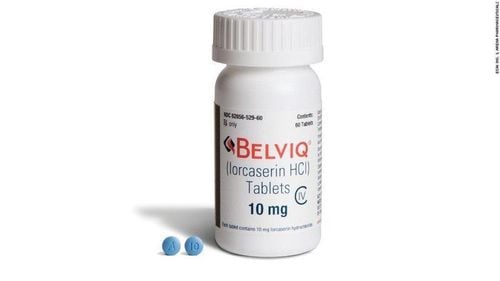This is an automatically translated article.
The article was professionally consulted by Specialist Doctor I Nguyen Hong Phuc - Emergency Resuscitation Doctor, Emergency Resuscitation Department - Vinmec Phu Quoc International General Hospital. The doctor has nearly 20 years of experience in Emergency Resuscitation.BMI helps you to determine whether your body is currently obese or malnourished and to what extent. BMI is calculated based on height and weight data. When you know your bmi, you can plan to lose weight or supplement with appropriate nutrition.
1. What is BMI?
BMI (Body Mass Index), also known as body mass index, body weight index, is a commonly used tool to measure body fat. Standard BMI is calculated based on height and weight and applies to adult men and women.
Body mass index is calculated by the formula:
BMI = W/ [(H)2] Where:
BMI commonly used unit is kg/m2 W is weight (kg) H is height (m) A person with a normal BMI will range between 18.5 - 24.9, this number indicates that you are at your ideal weight.
2. How much BMI is overweight or obese?
When your body mass index is between 25 and 29.9, you are overweight.In case the BMI is 30 or more, it shows that you are obese. Accordingly, about one-third of women in the United States are obese.

3. Factors affecting body weight
Several factors affect your weight, including:Excess calories: The body needs enough calories to meet its daily energy needs. However, when excess calories are stored, they will be stored as fat. Adding too many calories will lead to overweight and obesity. Aging: Your weight will usually increase a bit as you get older. Genetic factors: Some cases have genetic disorders, leading to obesity. Pregnancy: During pregnancy, pregnant women often gain weight. After giving birth, a woman often can't lose weight back to the normal level it was before pregnancy. In addition to geographical or pregnancy factors, you can actively control your daily calorie intake to keep BMI at a normal level.
4. How does too high BMI affect health?
An increase in BMI that is too high will adversely affect health and cause many dangerous diseases. Many serious health problems are linked to being overweight or obese, including:Cardiovascular disease Diabetes Gallbladder disease Risk of certain types of cancer, such as endometrial cancer uterus, breast, colon and gallbladder. In addition, obesity can also increase the risk of ovarian cancer. Sleep apnea Joint disease Infertility.
5. How to have an ideal BMI?
To reach your ideal BMI, you need to lose weight. Losing weight requires you to use more calories than you take in. You can do this by exercising regularly to burn off excess calories, combined with a healthy diet.Best, see a doctor to be able to plan a balanced, reasonable and nutritious meal. If necessary, you can quickly reach a normal BMI with strict diets, combined with regular exercise.

6. How to lose weight safely without drugs
6.1. Proper diet Should limit the intake of foods high in sugar and fat. To get back in shape, you can cut calories and reduce sugar by avoiding sugary drinks, such as soft drinks or sweetened teas. These drinks contain a lot of sugar and are rich in energy, and are often consumed with meals, making the amount of calories provided to the body become too much.Besides, should adjust eating habits by controlling portion sizes, avoiding eating too much of one type of food, dividing into many small meals. This will limit the intake of too much energy after each meal.
6.2. Moderate exercise People who have successfully lost weight and maintained an ideal BMI are in the habit of spending 60-90 minutes on moderate-intensity exercise most days of the week. You don't have to group exercises to do them all at once. For example, you can exercise for 20-30 minutes, divided into three times per day. It is important that you maintain a regular exercise routine daily, weekly, continuously for many months, so you can see a noticeable weight loss effect.
In addition to weight loss, exercise also promotes general health and improves mood. Various exercises help to increase your endurance, improve flexibility and muscle strength. Exercise also helps reduce symptoms of depression and stress in some people. The risk of heart disease, colon cancer and diabetes is also significantly reduced if you maintain regular physical activity.
7. Should drugs be used to lose weight?
For some people, even diet and exercise can't help them lose weight. In particular, if you have a BMI greater than 30, or 27 or more, but have certain medical conditions, such as diabetes or heart disease, then this medicine will be a complementary choice. supplements to help you lose weight more effectively.8. When should surgery to lose weight?
If neither diet nor exercise work, your doctor may consider weight loss surgery. This is a viable choice for people who are severely obese (BMI of 40 or more) or have a BMI of 35 - 39 with many serious diseases and complications caused by obesity. Weight loss surgery has the potential to help you lose a significant amount of weight. This would be really significant in reducing the risk of serious obesity-related health problems.
Once you calculate your BMI, you can compare it with your ideal BMI to see how much weight you need to lose, or gain, to return to your normal weight.
If you have a need for consultation and examination at the Hospitals of the National Health System, please book an appointment on the website for the best service.
Please dial HOTLINE for more information or register for an appointment HERE. Download MyVinmec app to make appointments faster and to manage your bookings easily.
Reference source: Acog.org













